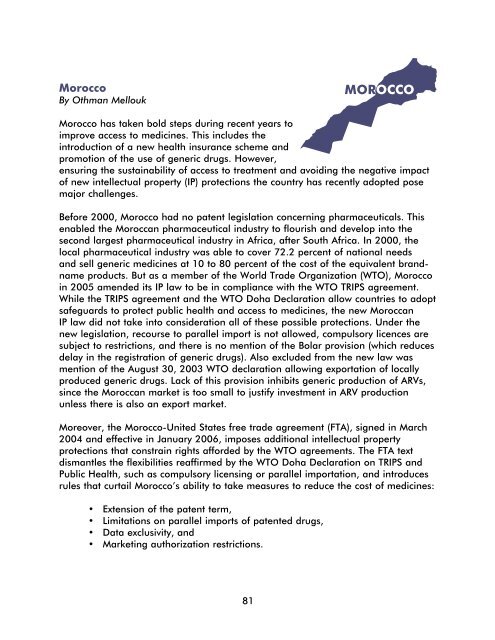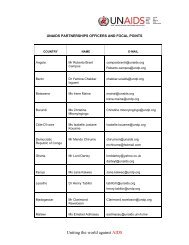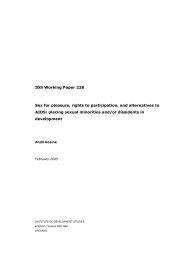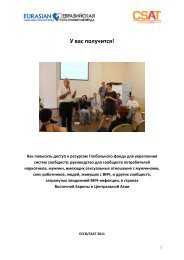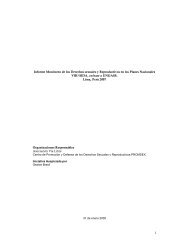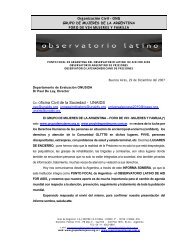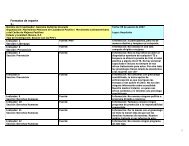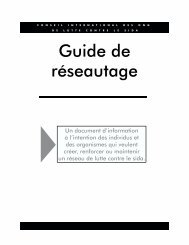Missing the Target #5: Improving AIDS Drug Access ... - CD8 T cells
Missing the Target #5: Improving AIDS Drug Access ... - CD8 T cells
Missing the Target #5: Improving AIDS Drug Access ... - CD8 T cells
Create successful ePaper yourself
Turn your PDF publications into a flip-book with our unique Google optimized e-Paper software.
MoroccoBy Othman MelloukMorocco has taken bold steps during recent years toimprove access to medicines. This includes <strong>the</strong>introduction of a new health insurance scheme andpromotion of <strong>the</strong> use of generic drugs. However,ensuring <strong>the</strong> sustainability of access to treatment and avoiding <strong>the</strong> negative impactof new intellectual property (IP) protections <strong>the</strong> country has recently adopted posemajor challenges.Before 2000, Morocco had no patent legislation concerning pharmaceuticals. Thisenabled <strong>the</strong> Moroccan pharmaceutical industry to flourish and develop into <strong>the</strong>second largest pharmaceutical industry in Africa, after South Africa. In 2000, <strong>the</strong>local pharmaceutical industry was able to cover 72.2 percent of national needsand sell generic medicines at 10 to 80 percent of <strong>the</strong> cost of <strong>the</strong> equivalent brandnameproducts. But as a member of <strong>the</strong> World Trade Organization (WTO), Moroccoin 2005 amended its IP law to be in compliance with <strong>the</strong> WTO TRIPS agreement.While <strong>the</strong> TRIPS agreement and <strong>the</strong> WTO Doha Declaration allow countries to adoptsafeguards to protect public health and access to medicines, <strong>the</strong> new MoroccanIP law did not take into consideration all of <strong>the</strong>se possible protections. Under <strong>the</strong>new legislation, recourse to parallel import is not allowed, compulsory licences aresubject to restrictions, and <strong>the</strong>re is no mention of <strong>the</strong> Bolar provision (which reducesdelay in <strong>the</strong> registration of generic drugs). Also excluded from <strong>the</strong> new law wasmention of <strong>the</strong> August 30, 2003 WTO declaration allowing exportation of locallyproduced generic drugs. Lack of this provision inhibits generic production of ARVs,since <strong>the</strong> Moroccan market is too small to justify investment in ARV productionunless <strong>the</strong>re is also an export market.Moreover, <strong>the</strong> Morocco-United States free trade agreement (FTA), signed in March2004 and effective in January 2006, imposes additional intellectual propertyprotections that constrain rights afforded by <strong>the</strong> WTO agreements. The FTA textdismantles <strong>the</strong> flexibilities reaffirmed by <strong>the</strong> WTO Doha Declaration on TRIPS andPublic Health, such as compulsory licensing or parallel importation, and introducesrules that curtail Morocco’s ability to take measures to reduce <strong>the</strong> cost of medicines:• Extension of <strong>the</strong> patent term,• Limitations on parallel imports of patented drugs,• Data exclusivity, and• Marketing authorization restrictions.81


